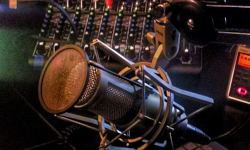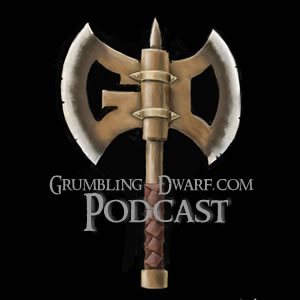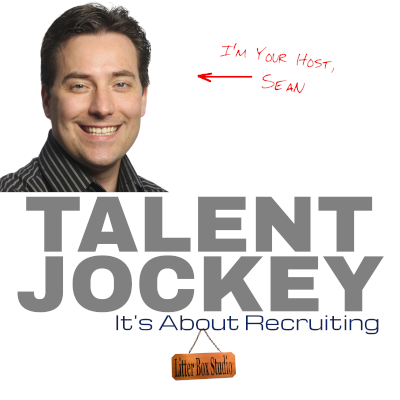Content Creator
Shock[less] Jock

My love of podcasting probably stems from when I was very young. I pretended I was a radio DJ. I’d have a mini boombox, I say ‘mini’ boombox because we didn’t have a lot of money so my mom got me a boombox with one speaker, and an all-in-one stereo (turntable, radio, cassette player). I’d put the boombox on top of the stereo. The stereo would play the music from the radio station, I could turn up and down the volume as if to do fade-ins and stingers, and the boombox would record my show to tape cassette. I’m sure I’d be quite amused to see my earlier ‘performances’.
Podcasting
I don’t recall what my first podcast was or how I even became to know what one was. It might have been been Leo Laporte’s Twit network, or one of the early shows in the tabletop role-playing game genre that was my first exposure to the medium. Either way, I was a fan. You just needed a microphone, recorder, and some way to get into an RSS feed and anyone, anywhere, can download your episode and listen to it.
Like many podcast producers, many of their shows stem from being an avid listener and thinking, “I can do this, and maybe even better, or different.”
I started my first podcast over 10 years ago called The Grumbling Dwarf Podcast. It was short-lived, only releasing four episodes before it podfaded. I used a condenser microphone I bought at Guitar World along with an M-Audio usb interface. I used Mixcraft to record. A piece of software rarely referenced in podcasting today.

Audio Resume and Credentials
My career took a turn when I went from the role of corporate recruiter to information security. I spent 18 months doing security awareness and risk, but realized that I may not be able to go back to human resources after my previous HR position had been backfilled. I took it upon myself to better position my re-entry into technical recruiting by launching Talent Jockey. A show for recruiters, job seekers and hiring managers, Talent Jockey not only allowed me to provide guidance and insight into the world of talent acquisition, but it also gave future employers a deeper look at my expertise beyond the resume.

Be Passionate About Your Topic
One of my hobbies is playing tabletop role-playing games. In order to have a podcast that goes past the first seven to fourteen episodes you need to have a topic that you’re passionate about. I proposed the idea to a friend and we started Gaming and BS RPG podcast in 2014. The show was released on a weekly basis for 6 years, lasted just shy of 8 as we sunset the show on June 27th, 2022. We recorded 384 regular episodes and more than 16 bonus episodes.
Doing It Better
After years of listening to podcast shows, and having produced Gaming and BS for four years, I decided to seek formal lessons in audio engineering, specific to podcasting. I felt that garnering an audience not only relied on subject matter and entertainment value, but to be competitive within the space it was important to sound good.
In September of 2018 I attended Chris Curran’s Podcast Engineering School. Chris has been a great mentor
The podcast journey has been an awesome experience. I consume podcasts about podcasting and my knowledge of the medium has deepened quite a bit since 2008. Audio engineering, compression, eq, loudness/LUFS, db, condenser vs dynamic microphones, and a variety of software are no longer completely lost on me.
OBS, Twitch, Youtube, Litter Box Studio
Gear
Some podcast gear that I have used over the years:
Microphones
- Heil PR40
- Electro-Voice RE 320
- Audio-Technica ATR2100
- GTD Audio Cordless
- Samsun Q2u
- BOYA BY-M1 lavalier
Mixers and Audio Interfaces
Audio Software
- Reaper
- Adobe Audition
- Hindenburg Journalist
- Auphonic
- Izotope RX7 Advanced
- Podcast Chapters
Plugins
My favorites include:
- Waves
- Scheps Omni Channel
- Vocal Rider
- WLM Plus Loudness Meter
- Fabfilter
- Pro-Q 3
- Pro-L 2
- Pro-C 2
- Pro-MB
Video
While audio has been my forte, recently delving into live streaming and Youtube, I am becoming familiar with Davinci Resolve.